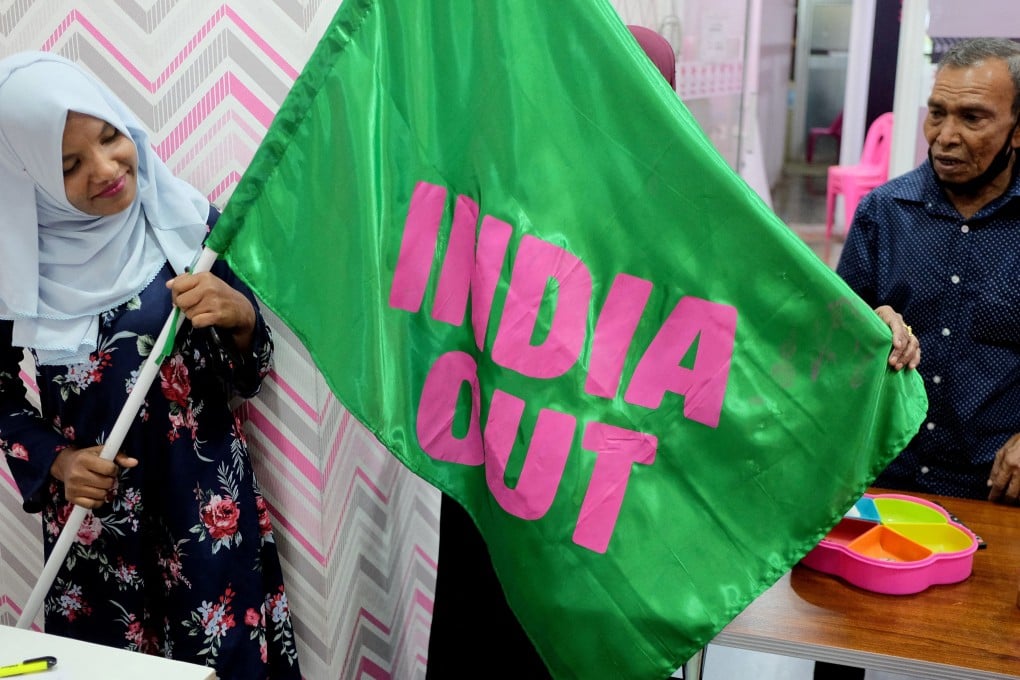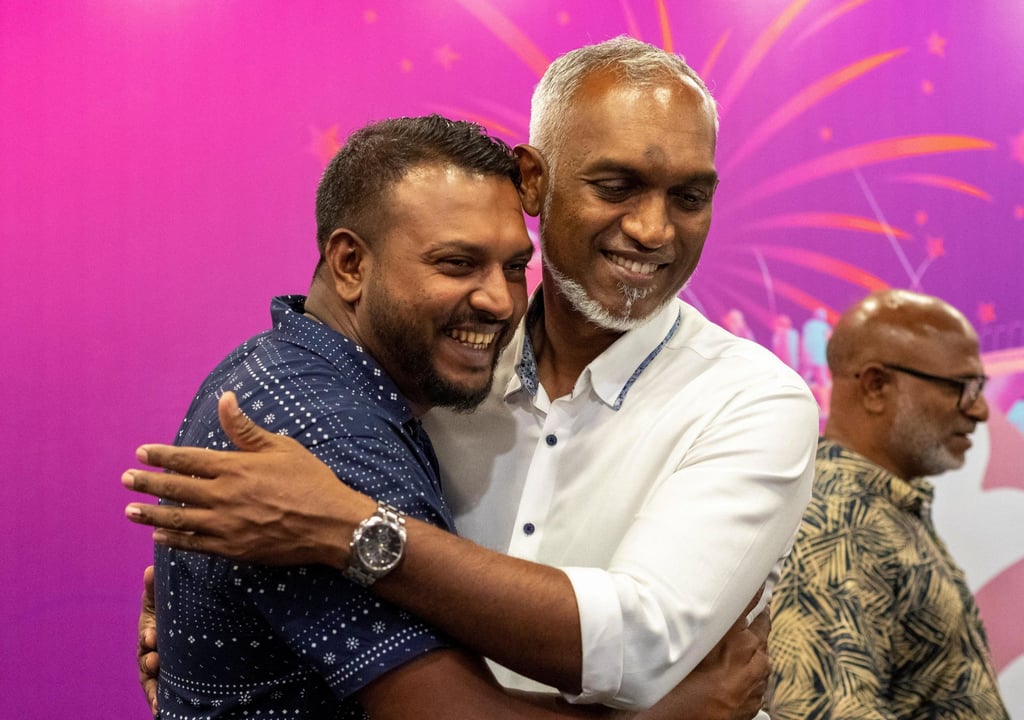Advertisement
Is ‘India Out’ of the Maldives as China-friendly leader Mohamed Muizzu takes charge?
- President-elect Mohamed Muizzu has made it a priority to cut India’s military presence in the Maldives, diluting New Delhi’s role as ‘first responder’
- His election calls into question Male’s commitment to the US’ Indo-Pacific strategy – as analysts say China will now look to ‘widen its footprint’
Reading Time:5 minutes
Why you can trust SCMP
1

China-friendly Mohamed Muizzu’s victory in the Maldives’ recent presidential election has set alarm bells ringing in New Delhi, after he won a majority on the back of a concerted campaign to limit Indian influence in the island state.
The Maldives, an archipelago of more than 1,000 islands less than 1,000km off the southwest coast of India, occupies a prime vantage point for surveillance and monitoring of maritime traffic in the Indian Ocean – making a change of government in capital Male a security and strategic headache for Delhi.
In the wake of his victory over incumbent Ibrahim Solih, Muizzu announced that his “first order of business” after taking office would be to cut India’s presence by limiting the number of Indian soldiers in the Maldives.

“The people have decided and don’t want Indian troops to stay in the Maldives. Therefore, foreign soldiers cannot be here against our sentiments, against our will,” Muizzu, 45, was quoted as saying by local media.
It’s unknown exactly how many Indian military personnel are stationed in the Maldives, but the island state’s armed forces told a parliamentary committee in 2021 that the number was 75 – ostensibly there to maintain aircraft that Delhi gifted Male.
In response to Muizzu’s public comments, India’s foreign ministry last week said it was looking forward to working with the new Maldivian government on “all issues” – referencing the two nations’ “time-tested” ties. Delhi’s envoy to the Maldives also reportedly met Muizzu shortly after his victory to convey Prime Minister Narendra Modi’s congratulations.
But analysts say Delhi is quietly concerned about the new president’s rhetoric and increasingly worried that he will steer the Maldives closer to China at the expense of Indian influence, with all the knock-on effects on the United States’ Indo-Pacific strategy that would entail.
Advertisement